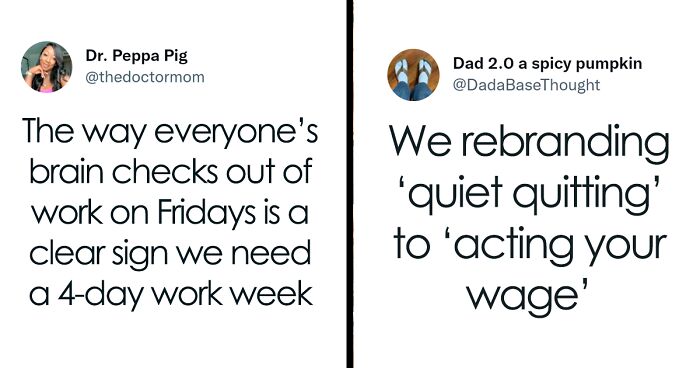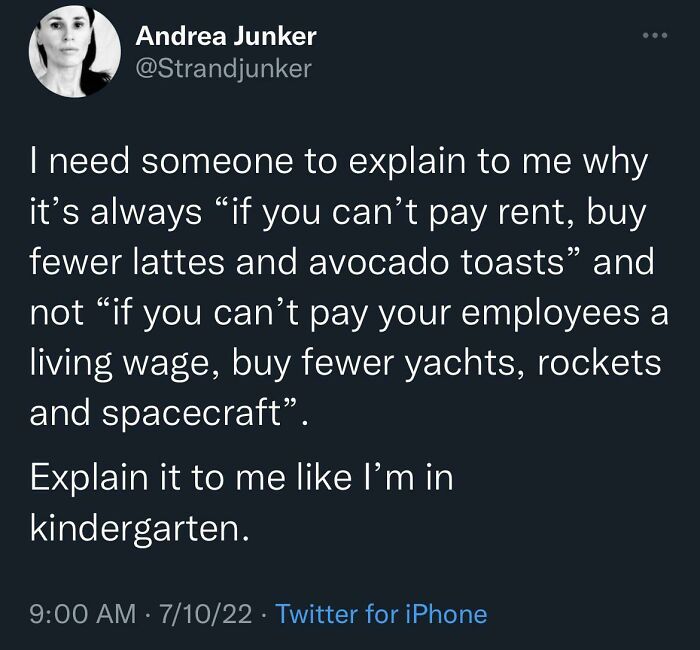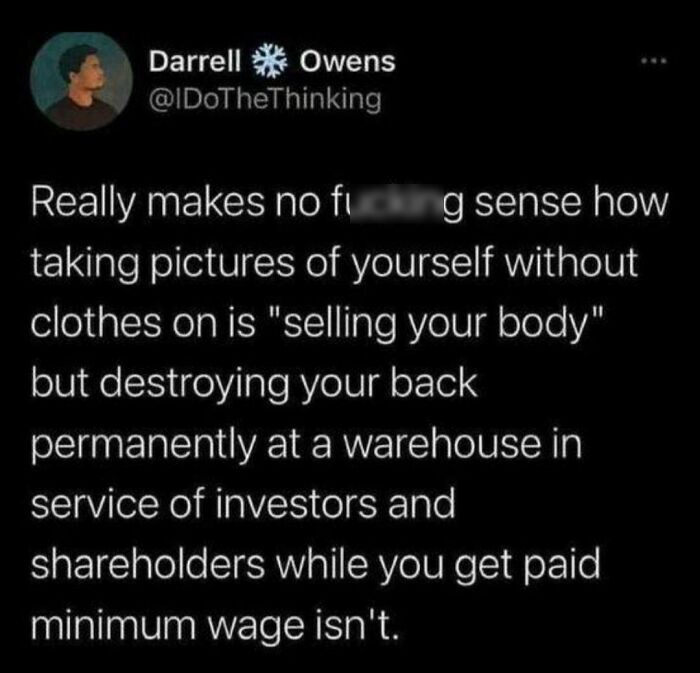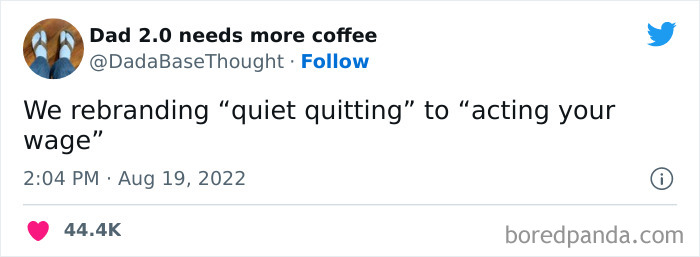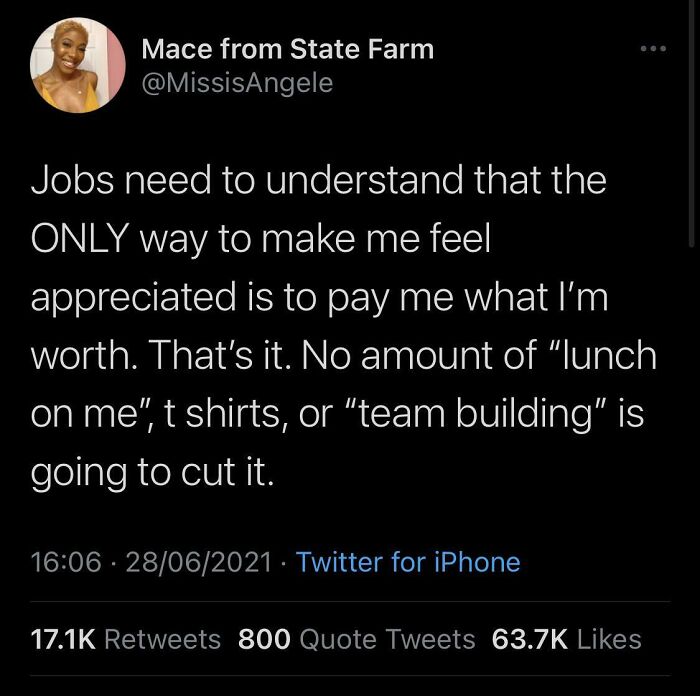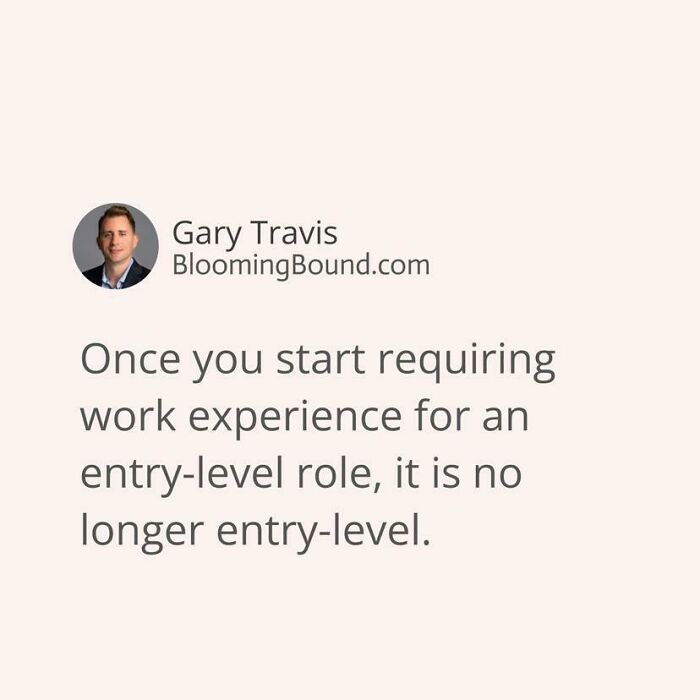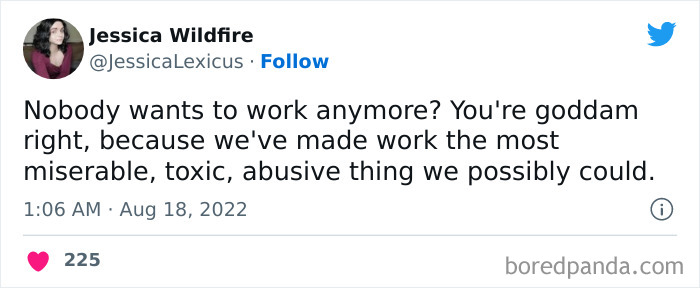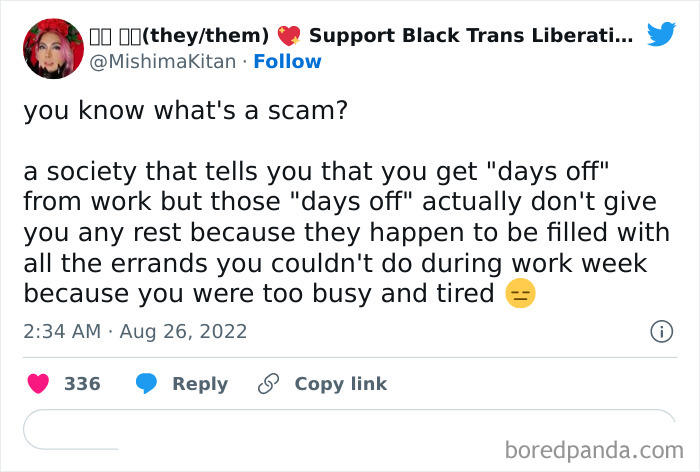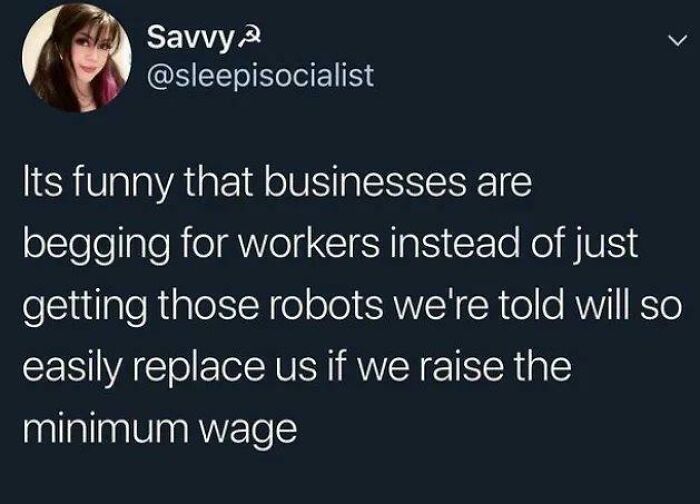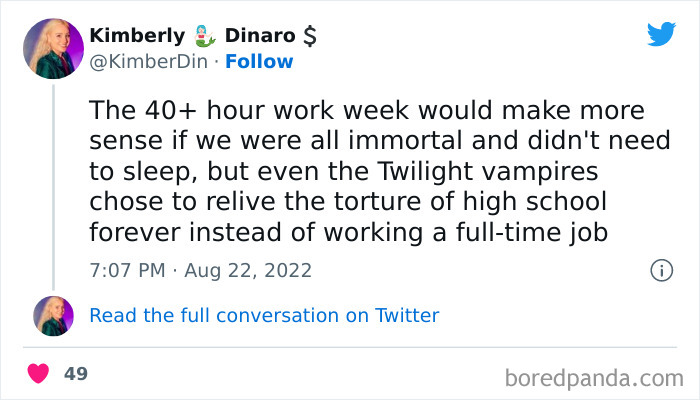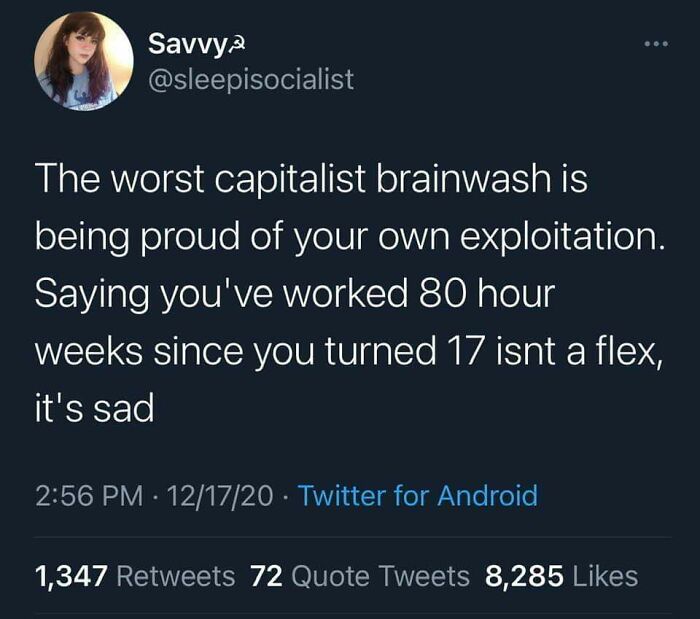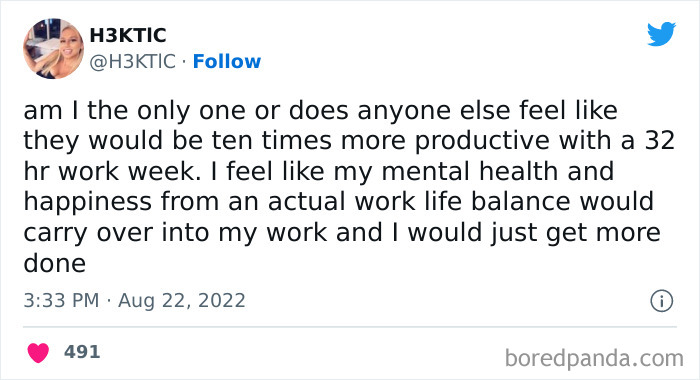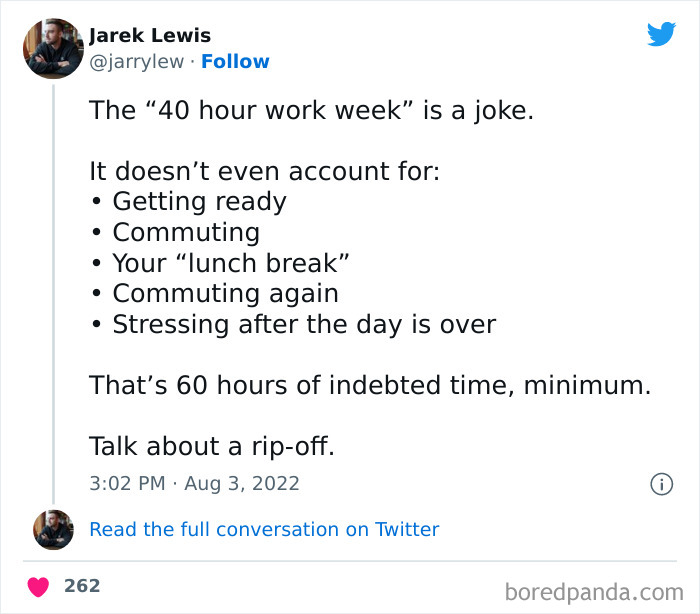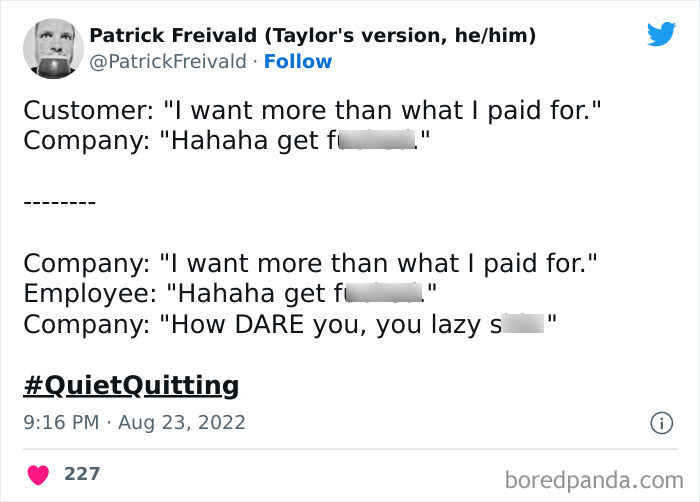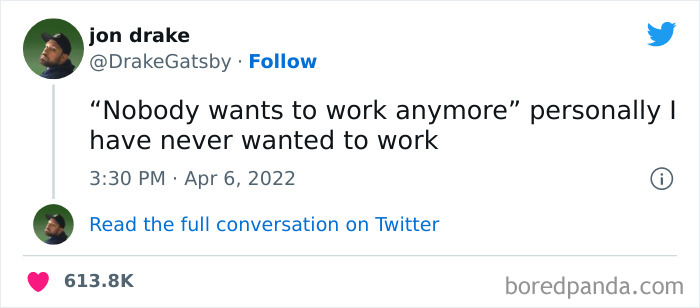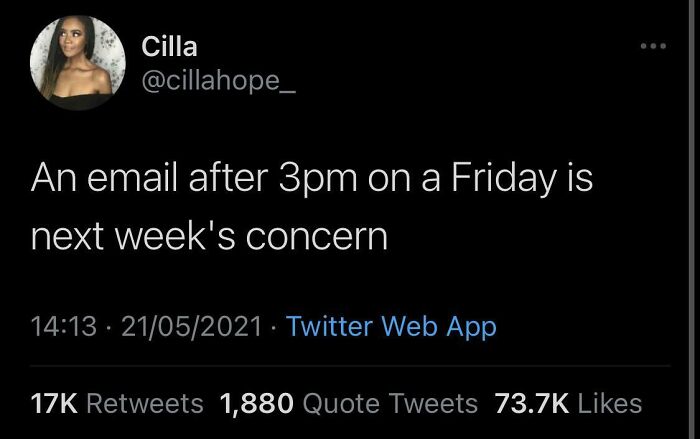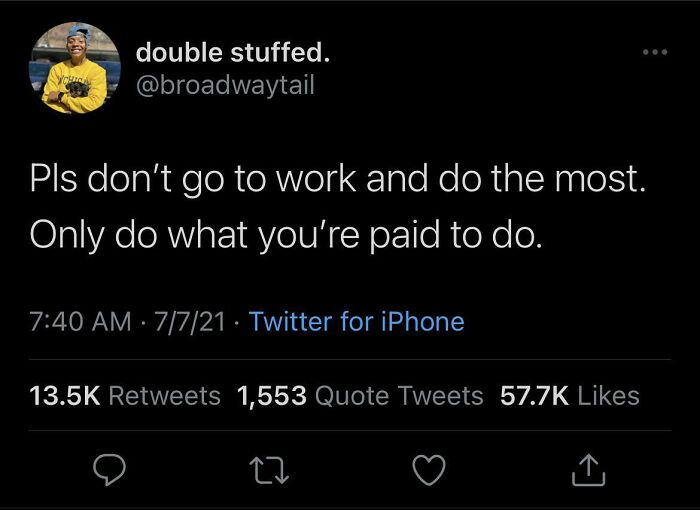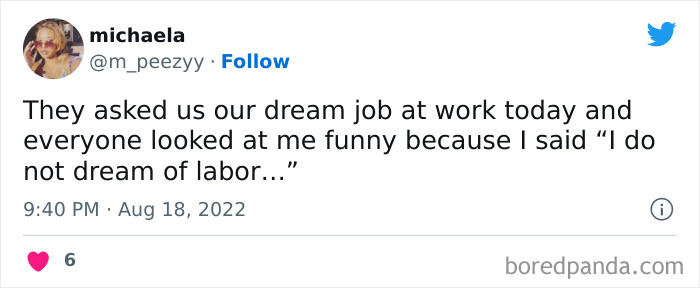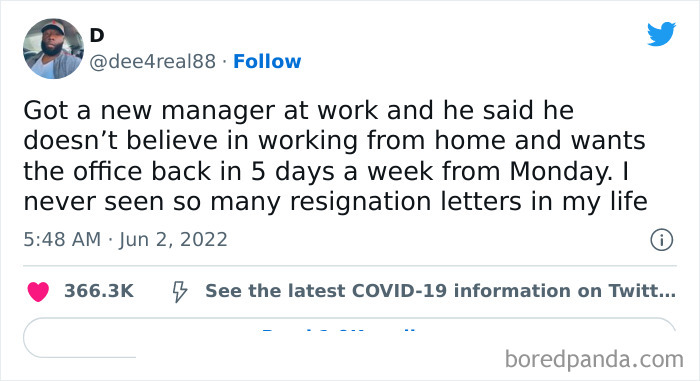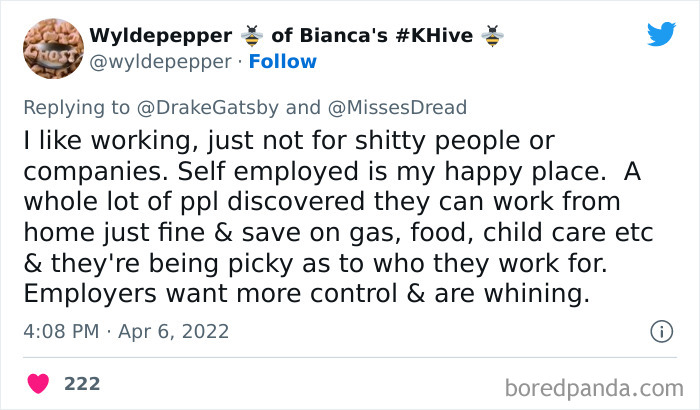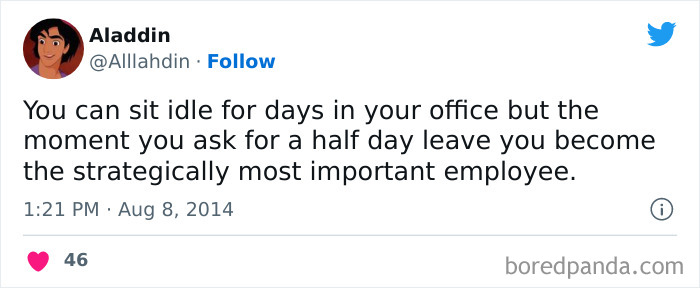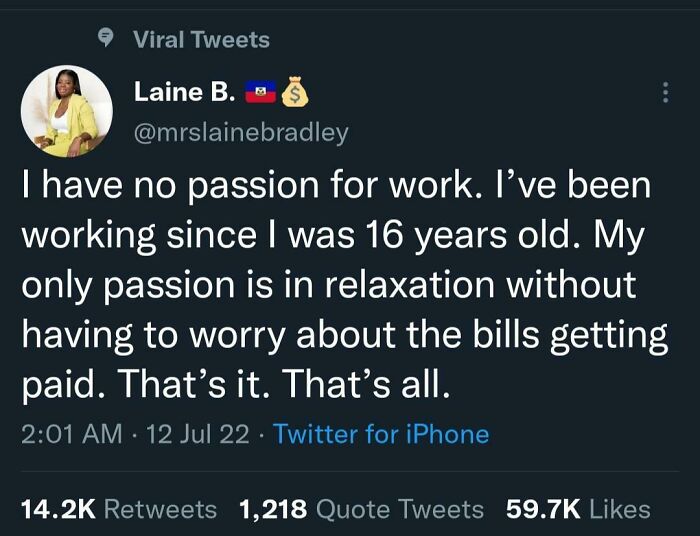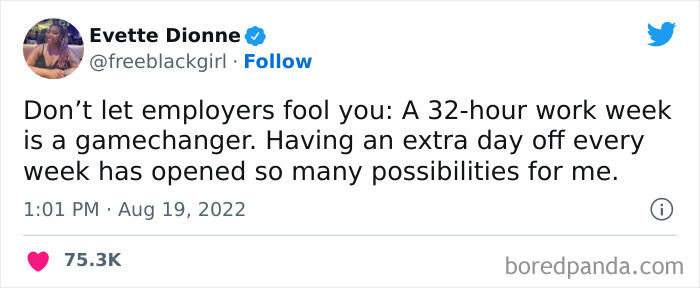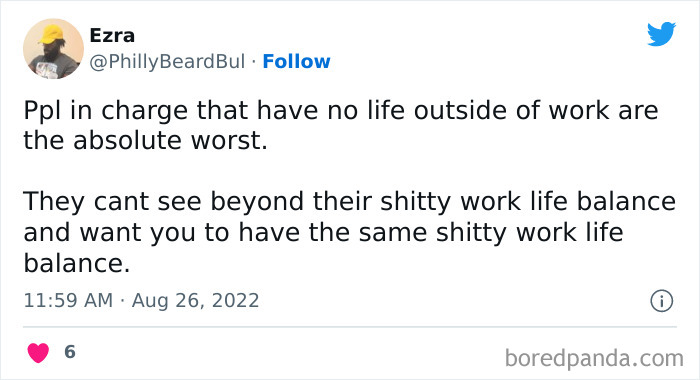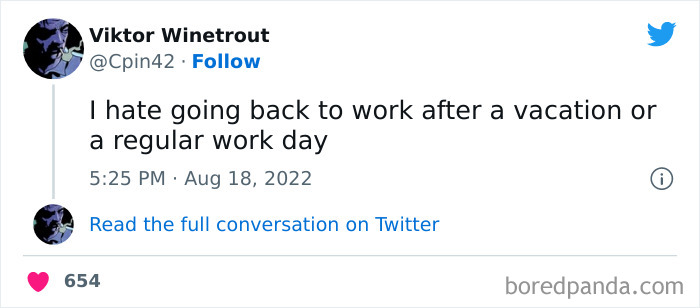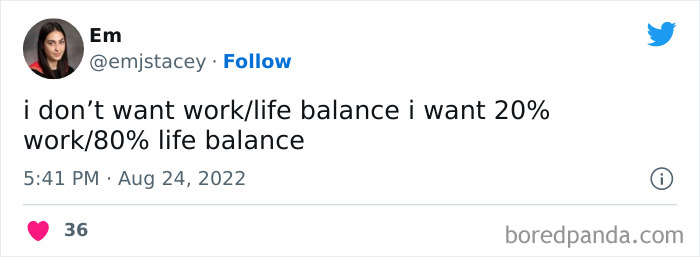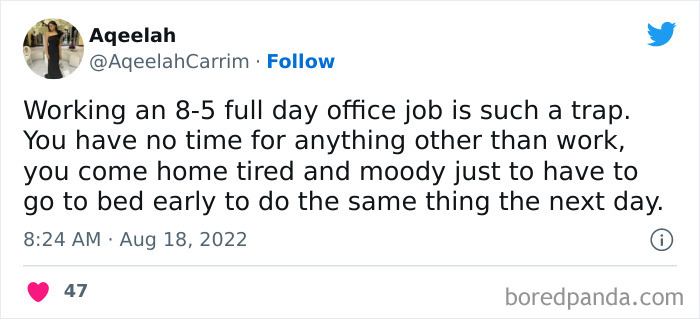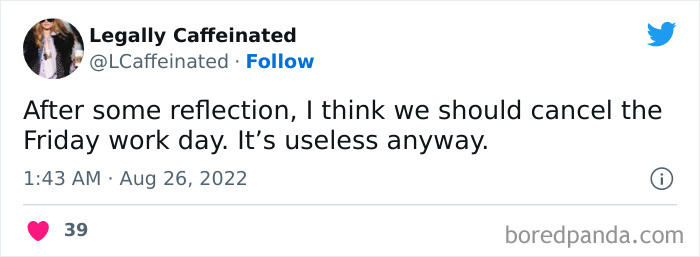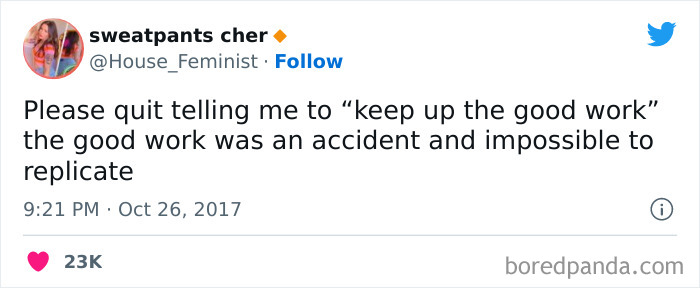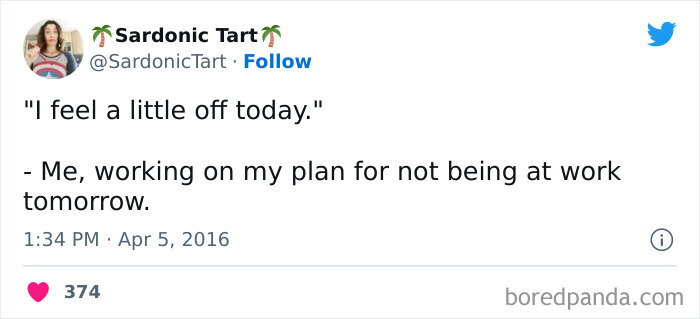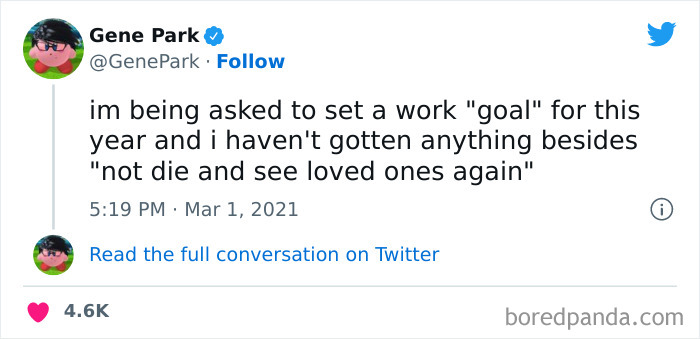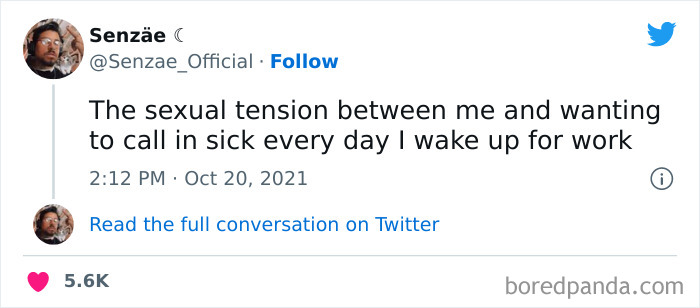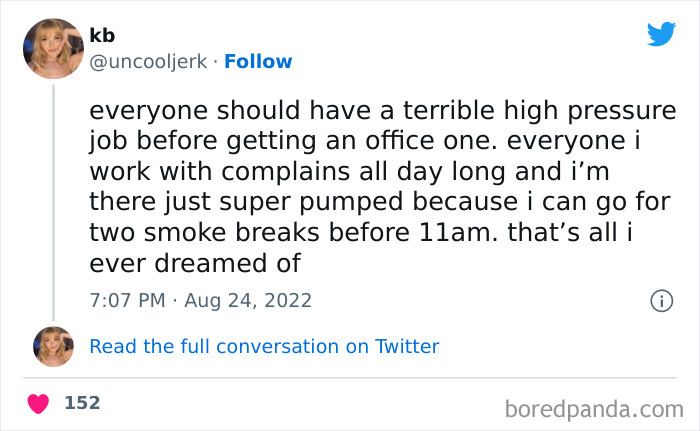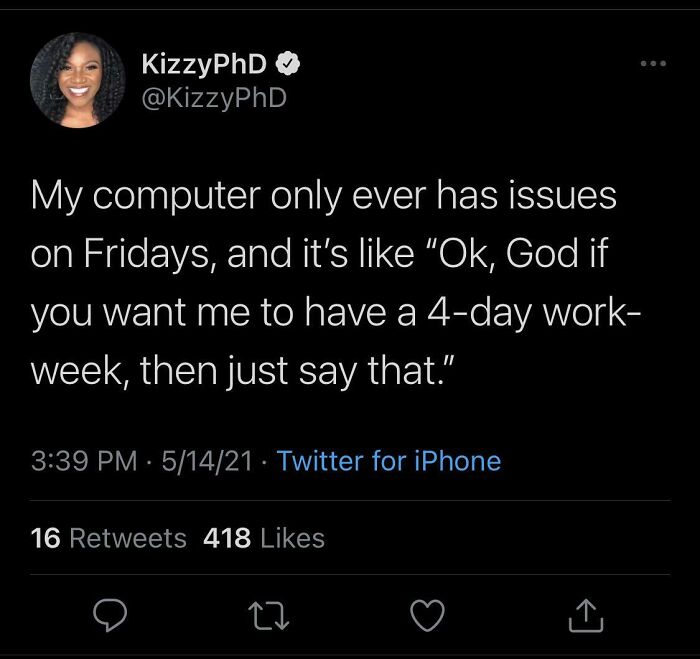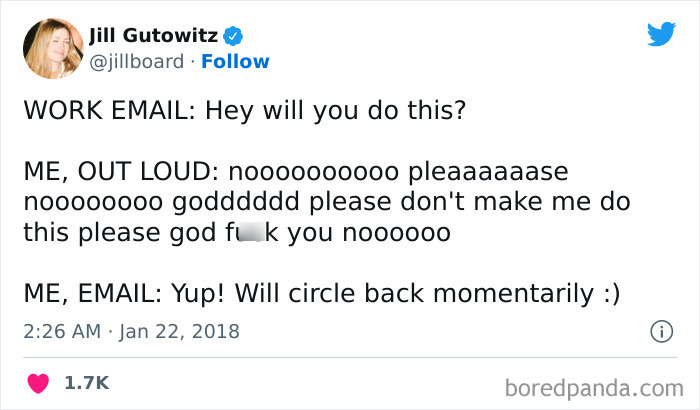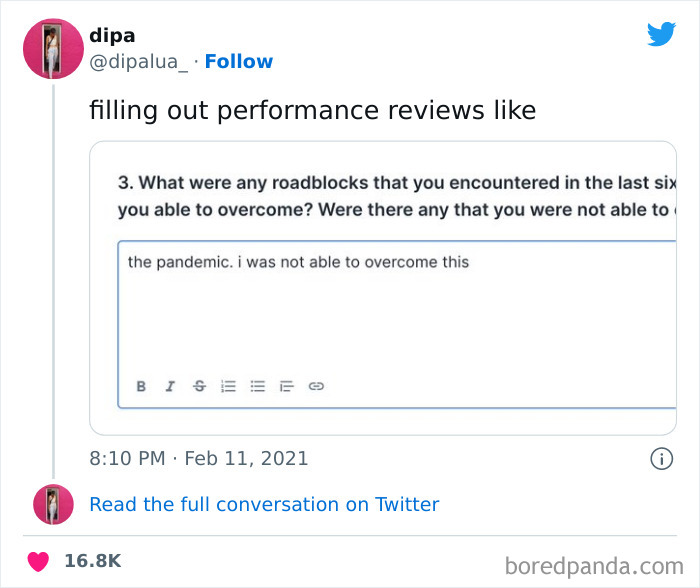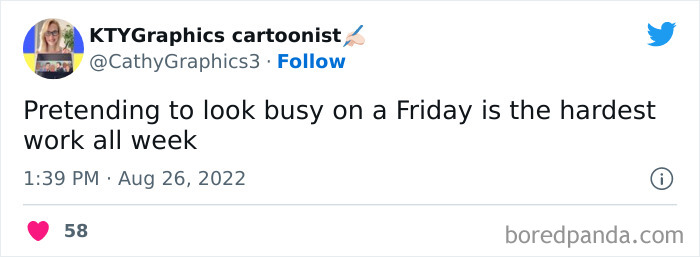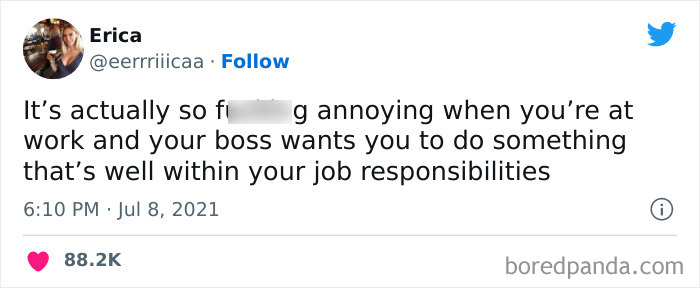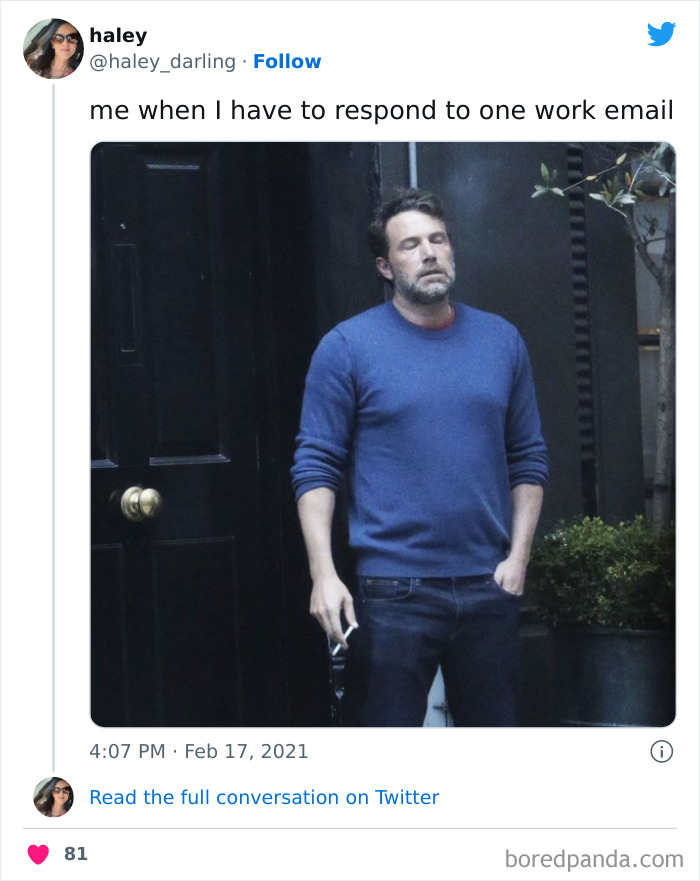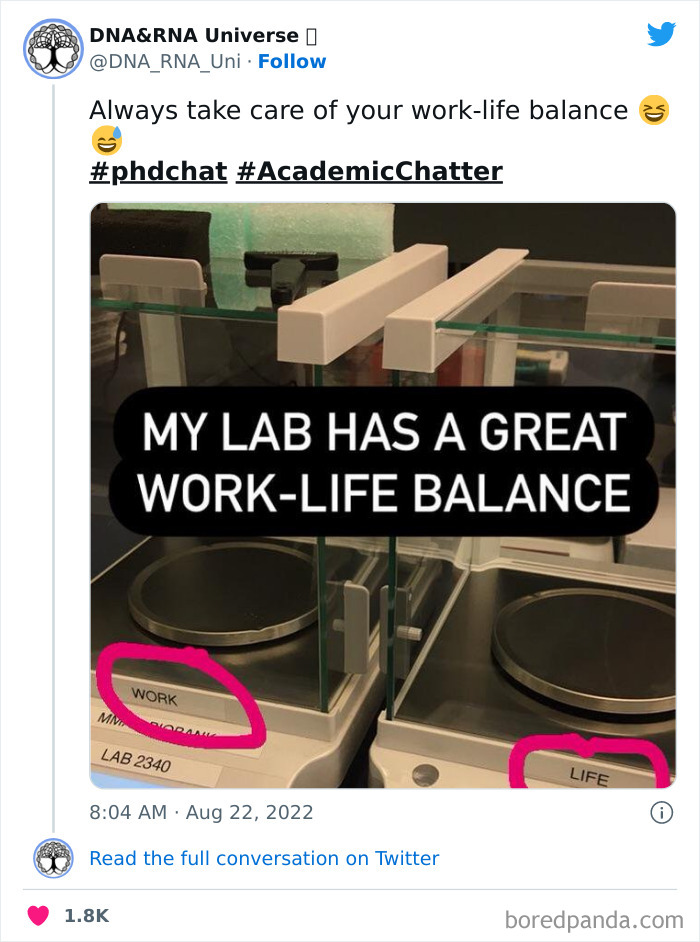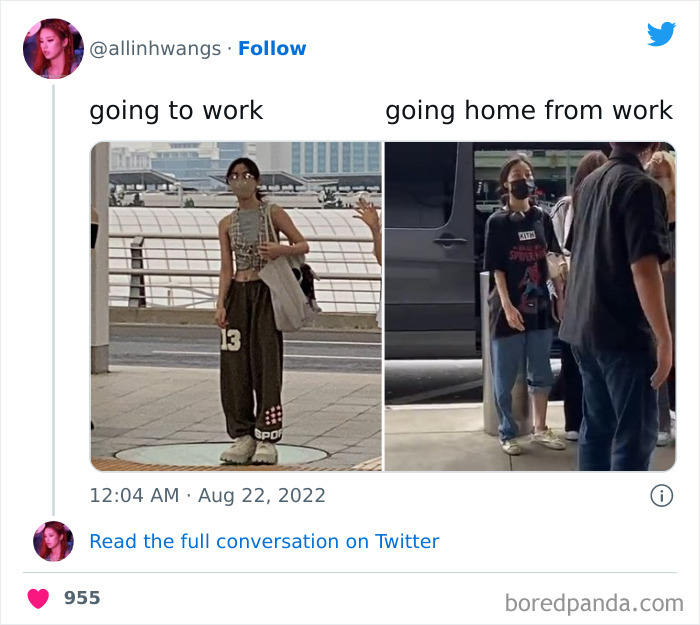No job is ever going to be ‘perfect’—there will always be something that needs to be tweaked and fixed, always something to grumble and mumble about. At the same time, it’s incredibly important to have good working conditions, competent and positive management, a sense of purpose, and room for financial and career growth. If you’re waking up every morning dreading the day ahead, if you’re burned out beyond belief, something’s wrong and you need to fix it.
While some workers might be too timid (or too calculating) to raise their voices about important workplace issues, others throw caution to the wind and speak up. This article is about them. Bored Panda is featuring tweets from people who weren’t afraid to complain about their work and the job industry online, and some of them make some pretty good points.
Check out what they had to say, and as you’re scrolling down, remember to upvote the tweets that spoke to you the loudest, Pandas. Care to share a few thoughts about the tweets? Got some ideas about work-life (or, well, life-work) balance that you’d love to get off your chest? Tell us all about it, as well as your relationship with work, in the comments.
Workplace expert Lynn Taylor was kind enough to share her thoughts about the difference between complaining and constructive criticism to Bored Panda, as well as why it’s important to have potential solutions to problems in mind and to learn to ‘manage up.’ Lynn is the author of ‘Tame Your Terrible Office Tyrant: How to Manage Childish Boss Behavior and Thrive in Your Job’ and the head of the fashion brand ‘Behind the Buckle.’
"Diplomacy is what delineates complaining from constructive criticism—and good versus great employees. Strong emotional intelligence is at the core. And that’s a key trait of successful business leaders,” she shared with us.
This post may include affiliate links.
According to workplace expert and author Lynn, complaining is different from constructive feedback in three ways:
- “Complaining is a one-way street. Venting about a problem is rarely constructive. That is, unless you follow the complaint with actionable ideas.
- Conversely, constructive feedback creates a more two-way, open dialogue, with conflict resolution as the ultimate goal. Here, the person having issues actually wants to see a change, whereas a complainer is often someone who doesn’t expect anything to change. Their negative attitude can ultimately be self-fulfilling.
- There’s a fine line between complaining and wanting a mutually beneficial outcome. And that centers around knowing what your objectives are before you rant. Often, when people think about the outcome expected beforehand, they shift from a venting mindset to one of positivity. Their people savvy skills pave the way for better results.”
According to Lynn, the author of ‘Tame Your Terrible Office Tyrant,’ a positive aspect of a complaint is that you’re aware of the situation and trying to change the challenging circumstances. However, she argues, you have to be willing to take that to the next positive step.
“One of the best pieces of advice I can give to career-minded professionals is that before you issue a complaint verbally or in written form, have solutions ready,” she said. “Bosses are pre-disposed to wanting the least amount of burden on their plate, as they feel they have enough already. So when employees drain bosses with additional problems but offer nothing on the flipside, it’s career-limiting.”
Bosses tend to view complainers as people who have weak problem-solving skills. “You will ascend faster to senior management with such traits as independence, wisdom, resourcefulness, and patience to see a problem through. You may not have all the answers, but giving it your best shot is imperative,” the workplace expert told Bored Panda.
“Also whining to your colleagues is bad news because word can spread rapidly through office gossip. No one can eliminate commiseration or complaints from the workplace, as we’re all human. But everything has a degree… and everything has an outcome,” Lynn noted that employees should be careful about how they vent their dissatisfaction and anger.
“And of course, on social media, complaints can leave a permanent footprint—and the damage can run deep when you’re affecting your company’s reputation. Badmouthing a company publicly can also get you into legal hot water,” she pointed out that complaining isn’t as simple and straightforward as some would think. You have to be aware of the potential consequences.
“Managers expect you to share your issues privately and not drag the company through the mud. It’s also a dealbreaker for most prospective employers, as they don’t want to ‘be next.’ When raising an issue with your boss, you must put yourself in their shoes and realize they expect to work through solutions with you, that hopefully, you recommend.”
Workplace expert Lynn told Bored Panda about ‘managing up’ as a worthwhile skill to learn. According to her, it’s the antithesis of complaining and means deploying constructive criticism when necessary.
“If you’re managing up properly, you’re a problem solver for your boss, not the other way around. You’re there to make life easier for your manager. That said, you should never suffer in silence. People should complain when their boundaries are crossed or when their job becomes untenable. For example, if that’s the case, you would want to complain to management or HR or a combination thereof,” she stressed the importance of speaking up when there’s something legitimately wrong.
“In my book, ‘Tame Your Terrible Office Tyrant: How to Manage Childish Boss Behavior and Thrive in Your Job,’ I talk about the acronym CALM. That stands for Communicate, Anticipate, Laugh, and Manage. When you have conflict at work, the first thing you need to do is stay calm. Think things through before speaking; you’ll get a better result,” she said.
“Also, ‘anticipate’ their answer. If you’re complaining, the automatic reaction in business is, ‘Okay, so what do you suggest?’ And oftentimes the employee does know the answer better than the boss, as they’re closer to the situation.”
Meanwhile, the L part of CALM stands for ‘levity’ (i.e. humor), “which helps when you’re struggling with an issue, assuming your boss is not toxic. For example, levity reduces tension barriers and can smooth the way to conflict resolution.”
Finally, the M in the acronym means ‘manage.’ “That’s using positive and negative reinforcement to affect behaviors. People ages 2 to 62 are no different when it comes to core human emotions, such as praise, fear, and rejection. So when you have something negative to say, couch it in between ‘positive bookends.’"
The workplace expert shared an example of how an employee might use the CALM approach when speaking to management about a problem. You could try something like this: “‘I really like my job. But something set me back yesterday and I wanted to talk to you about it.’ That’s followed by constructive criticism. At the end of the conversation is something like, ‘Thank you for taking the time to talk through this with me. I really do enjoy working here and with you.’”
Lynn suggested choosing courage over comfort and taking the leap to air your concerns at work. “Just use a heavy dose of emotional intelligence and take a positive, constructive route.”
The responsibility shouldn’t just fall on the employees’ shoulders when it comes to adopting a more constructive approach to criticism. Managers also need to heed the complaints that might come their way.
“Employees are mere mortals and tensions can run high in the office. So it behooves management to encourage feedback—even if it doesn’t come in the most diplomatic form. Managers who operate in a vacuum will never succeed long term. They are only as good as their team,” Lynn explained.
“Strong business leaders can also model the right behavior for sharing criticism. For example, in meetings, successful executives know how to use diplomacy and share feedback constructively,” the workplace expert told Bored Panda.
“When emotionally intelligent managers who have an issue with an employee’s opinion or action share their contradictory perspective, employees don’t even feel they have been challenged! They set the example.”
There’s a lot to be said for voicing your opinion, especially when you’re scared of the consequences. How you phrase things, the tone of voice that you use, how you approach difficult managers—all of these things matter.
If your goal is to make some long-lasting changes in a potentially toxic or high-stress environment, then it’s vital to be diplomatic and empathetic, even if you don’t really feel like it. Rudeness and abuse should not be tolerated in the workplace. Though it’s also important to remember that your superiors are also human beings just like you—imperfect, probably overworked, and not fully aware of their flaws. As in all areas in life, clear communication wins the day.
No matter how awesome or terrible your coworkers are, at the end of the day, you yourself bear the weight of responsibility for your own happiness, job satisfaction, and ambitions. Yes, your job should absolutely give you a fair wage, opportunities for growth, and provide at least some greater purpose for your daily tasks to help keep you motivated.
But beyond that, it’s really down to you to find that deeper, personal meaning in your daily grind. If your workplace has pretty adequate work conditions and management isn’t squeezing you dry, it might be time to reevaluate how you approach work as a whole. Some people might feel burned out because they always go above and beyond without receiving any tangible reward, and sacrifice their health and free time for this. Others find that they simply aren’t passionate about their jobs beyond making enough money to keep a roof over their heads and putting food on the table. Whatever the particular issue might be, solving it should be priority number one.
Life coach Lindsay Hanson put it very well during her interview with Bored Panda, that each and every one of us is responsible for setting the boundaries for what we’re willing to tolerate. Both at work and elsewhere.
"If you feel that there's nothing you can do to change the situation and the company or people involved are unwilling to change, then you have to decide whether you're willing to stay in that environment or not," she said.
"A good question to ask yourself is, even if this toxic situation were to change, would I still want to work here?" the life coach noted this is something every employee should genuinely answer for themselves when considering the future of their career. It helps inform their next decisions, whether they should stick it out and help change things for the better, or bite the bullet and change jobs.
According to Lindsay, the very idea that you can’t change your work situation due to various reasons, whether it’s the pandemic or something else, is very limiting. “There are still companies hiring. There are still ways to make money on your own. There is always a way to change your current situation—telling yourself you're stuck feels very limiting,” she shared some thoughts on how to get past the idea that you’re ‘stuck’ in your current position forever.
"Again, it comes back to what you're willing to tolerate. You can do everything in your power to bring attention to the toxic situation and attempt to change it. And at the end of the day, you always have control over your own mindset, how you're reacting to the situation, and how much you let it affect you,” she said.
Eddy Ng, the Smith Professor of Equity & Inclusion at Queen’s University, reminded Bored Panda that if there are constant derogatory comments and unwelcome jokes at work, then a human rights complaint might be the best way forward. Employers can be held responsible for inaction.
"If repeated complaints about the toxic workplace to the manager or HR fall on deaf ears, then it is indicative that the employer is not taking the concern seriously and it's the cue that you should switch employers/workplace," he said.
At the same time, if your employers actually show signs that the organization is responding to worker feedback, it’s worth acknowledging this. "If management makes an effort for change, then it would be an opportunity to assist with that change," he said.
"Generally, it is easier to look for another job while you are still in one, so you don't have to explain gaps in employment or past problems with a prospective employer," the professor told Bored Panda earlier. He added that switching careers can be the perfect opportunity to take stock, engage in some career planning, and explore how to transition to new and perhaps even different positions.
Retooling and adapting can help you switch career lanes. Hopefully, something that you feel gives you a much greater sense of purpose, satisfaction, and, well, happiness. Where the only complaints you hear at your new job concern not microwaving fish in the kitchen.
This is odd... mainly because I don't feel the same about my job. I mean, I totally sympathise with all the people who do. But I like my job! I get to be around animals and nature all day.
I'm the same, different job and environment but I love my job. I find it extremely rewarding and fulfilling.
Load More Replies...I wish I was skilled and certified in a real job, like plumbing, teaching, farming… I believe that people are not meant to be in an office all day, but I’m stuck there and I feel like I can’t do anything else.
Employers need to pay people their worth. People are literally giving their all, and what do they get in return? No even enough to survive. In essence, this makes work a form of slavery. Pay your employees enough to thrive, have pensions in place, healthcare, bonuses, if you want them to give their best.
This is odd... mainly because I don't feel the same about my job. I mean, I totally sympathise with all the people who do. But I like my job! I get to be around animals and nature all day.
I'm the same, different job and environment but I love my job. I find it extremely rewarding and fulfilling.
Load More Replies...I wish I was skilled and certified in a real job, like plumbing, teaching, farming… I believe that people are not meant to be in an office all day, but I’m stuck there and I feel like I can’t do anything else.
Employers need to pay people their worth. People are literally giving their all, and what do they get in return? No even enough to survive. In essence, this makes work a form of slavery. Pay your employees enough to thrive, have pensions in place, healthcare, bonuses, if you want them to give their best.

 Dark Mode
Dark Mode  No fees, cancel anytime
No fees, cancel anytime 




